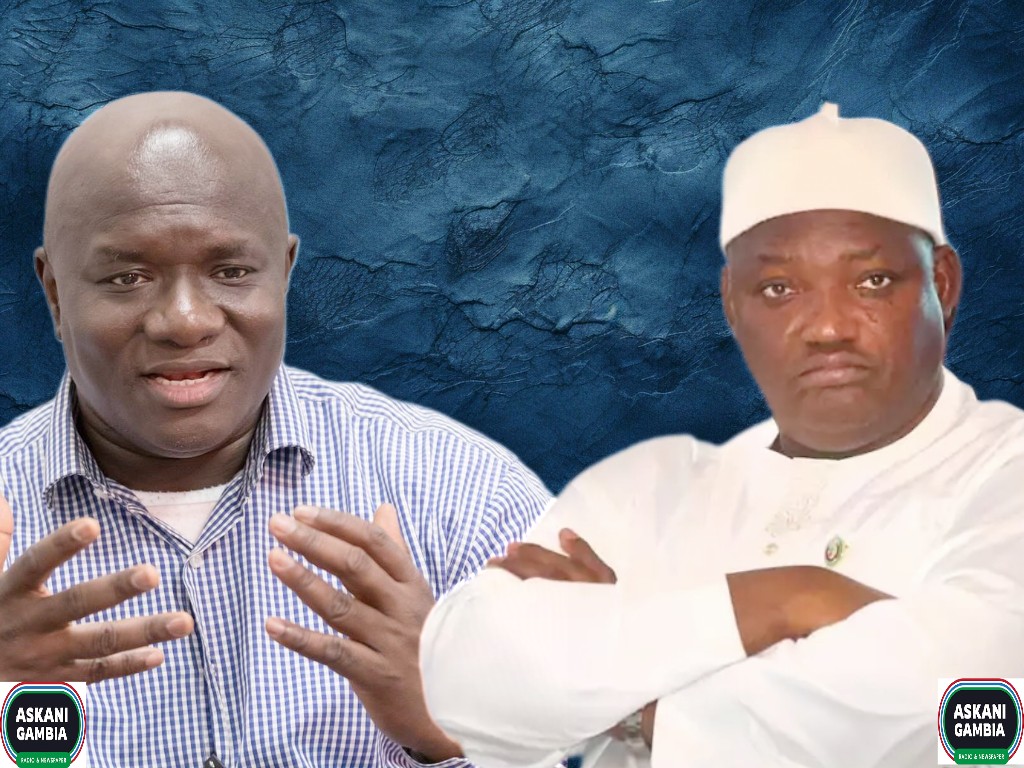The NPP rally held in Sukuta on Saturday was not just another political gathering. It was a troubling display of egotism, incivility, and thoughtlessness at the highest level of political leadership. What was expected to be a showcase of policy vision and national direction turned instead into a festival of insults, personal attacks, and dangerous rhetoric. The most unfortunate part is that this rally was led by none other than the President himself.
At a time when The Gambia is grappling with deepening poverty, unemployment, migration, and frustration, Gambians deserve leaders who will inspire unity and offer solutions, not those who inflame divisions. Politics is supposed to be the marketplace of ideas, where leaders compete on the strength of their programs and policies. Instead, what we witnessed in Sukuta was the denigration of opponents, the trivialization of governance, and the normalization of political indecency.
The Presidency Is Not Personal Property
The President and his ministers must be reminded that the presidency is not a private enterprise. It is an institution established by the Constitution and held in trust for the Gambian people. The authority vested in the President is not personal power; it is delegated constitutional responsibility. Hence, when the President speaks as if he is the sovereign, he dangerously undermines the very principles of republican governance.
Leadership demands humility before the law and respect for the people. The President’s words carry the weight of the state. They must therefore build, not break; unite, not divide; reassure, not inflame. A head of state who speaks like a partisan activist risk eroding the dignity of the office and sowing seeds of discord in the nation.
The Abuse of Political Speech
At the Sukuta rally, senior government officials followed the President’s example. The Minister of Information, Dr. Ismaila Ceesay, descended into the gutter of political insults by calling APP-Sobeya leader Essa Faal a liar and mentally imbalanced. Such remarks are unbecoming of a public officer, and they constitute political hate speech. They poison public discourse and trivialize democratic competition.
Similarly, it was in bad taste for Ceesay to mock UMC Spokesman Kemo Bojang’s academic background. In a democracy, the worth of a leader is not measured by where or how long they studied, but by what they stand for and what they deliver. The same applies to Hamat Bah, whose labeling of the opposition UMC as “threats” is both irresponsible and dangerous. In a democracy, opposition parties are not threats; they are legitimate actors in governance and accountability.
Empty Rhetoric in a Nation of Hardship
Equally disappointing was the absence of substance at the rally. None of the speakers addressed the pressing realities that ordinary Gambians face every day: high cost of living, poor service delivery, mass youth unemployment, the Deadly Backway, rampant corruption and growing inequality. Instead, they paraded lists of road projects and self-praise while ignoring the struggles of the people they claim to serve.
Leadership is not about reminding citizens of what government has built but about acknowledging their suffering and explaining how it will be alleviated. The failure to address these realities only widens the gap between rulers and the ruled and deepens the people’s loss of trust in government.
The Dangerous Normalization of Hate
What happened in Sukuta is not just about political bad manners, it is also a national security concern. When leaders use their platforms to insult, threaten, and demean others, they embolden supporters to act in the same way. They normalize hate and make political violence more likely. This is why the Independent Electoral Commission (IEC), the National Human Rights Commission (NHRC), the Inter-Party Committee (IPC), and the Inspector General of Police (IGP) must not remain silent. They have a duty to remind all political actors, including the ruling party, that freedom of speech in politics does not mean freedom to insult or incite division.
Civil Society Must Not Be Silent
The silence of civil society in the face of such dangerous political behavior would be complicity. Democracy survives not only through elections but through the vigilance of citizens who insist on accountability, civility, and justice. We must collectively resist the descent into politics of insult and fear. The Gambia belongs to all of us, not to one man, one party, or one tribe.
A Call for Leadership with Dignity
True leadership is not about how loud one shouts or how many projects one lists; it is about how one treats others, especially those who disagree. The Gambia needs leaders who can disagree without demeaning, compete without insulting, and govern without arrogance. The Sukuta rally was a painful reminder that our democracy is fragile and that our leaders often forget their oaths. But it is also a call to citizens to demand better. We must not allow political thuggery and verbal violence to define our national conversation.
The time has come to demand decency, humility, and respect in our politics. That is the foundation of national unity and the true meaning of democracy.
For The Gambia, Our Homeland


